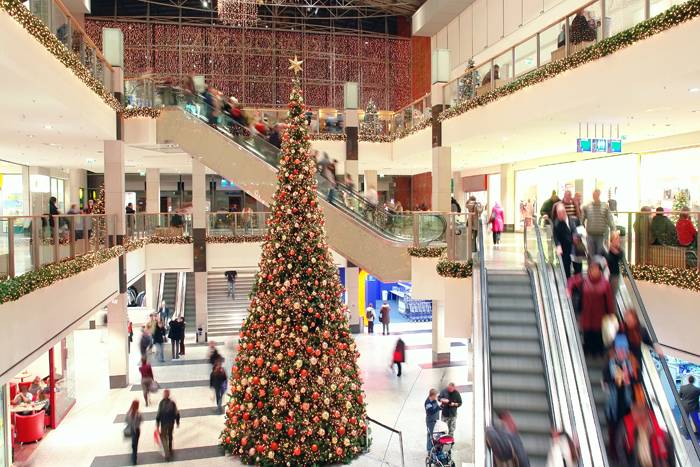Christmas shopping
In our society, shopping is part of social behaviour. For a long time its aim has not only been to cover basic needs, but it is rather seen as an enjoyable experience which makes us “happier”.
KNOW YOURSELF
Share

Media and especially advertising show us a lifestyle in which happiness depends on consumerism, which has led to the myth that it is one of the main sources of wellbeing.
The culture of excessive consumption, immediate satisfaction, living the moment and hedonism is promoted by an economic system which needs a constant increase in consumption. We aspire to consuming as much as possible, we consume what is pleasant, what everyone else consumes, and we look for a wide range of consumer options.
Towns have a large commercial offer in very attractive and convenient layouts, such as shopping centres. This has turned shopping into another urban leisure activity. The possibility of online shopping gives us 24/7 access to any type of product, which rounds up a varied offer.
Christmas is one time of year in which consumerism hits a peak. Exchanging Christmas presents is institutionalised and it is a cultural question which serves to reinforce social relationships; it is basically considered as a sign of affection.
Christmas is one time of year in which consumerism hits a peak.
WHY DO WE BUY SO MUCH?
A high percentage of the population realises that at this time of year they spend more than what is proportional to their income and their financial situation. The reason behind this phenomenon can be explained through the many different triggers which drive shopping behaviour.
Sometimes people shop to fight a negative feeling. When sadness, anger, frustration or loneliness arise, the tendency to buy may increase, in an attempt to feel excitement or to overcome boredom. This is an self-regulation mechanism to repair the mood.
Marketing also has an important role in provoking shopping behaviour. Around certain dates, especially at Christmas, a range of measures are taken which aim to draw us nearer to the attractive and beneficial elements of products.
Impulsivity and a high level of materialism also appear as characteristics of people with a higher tendency to buy on impulse. They usually associate happiness with possessions and they judge social status according to these possessions.

Credit options are also one of the main motors of excessive shopping. Every year, the misuse of credit cards generates significant levels of debt and impoverishment in many homes, with the consequent family and personal deterioration in many cases.
Today’s society’s consumer dynamics trap many people, and dates such as Christmas, on which the commercial offer is higher, are high-risk moments.
Associating shopping to leisure and negative emotional states encourages an increasing need of consumption. This makes people enter a loop in which they need more and more financial resources to respond to this higher consumption, which has harmful effects on personal and family life.
RECOMMENDATIONS FOR GOOD SHOPPING HABITS
1. Planning:
Before going shopping, make a list of products according to your needs. Be careful with the typical “let’s see what we find” outings, as these will probably encourage you to find things and buy more than intended.
2. Budget:
Associate a budget to the shopping list, setting a maximum spending amount according to your finances. The specific budget of one day’s shopping must be set according to the rest of the family finances.
3. Timing:
Choose the right time and place. Going shopping when you are bored or sad will encourage impulse buying.
4. Control over credit:
Preferably use debit cards which have an overdraft limit. Credit cards can produce a false idea of spending.
5. Compare prices:
There is currently a very wide, varied offer of products; taking time to research several optionsAntes de ir de compras hacer una lista de productos en función de las necesidades. Se debe tener especial cuidado con las típicas salidas de ‘a ver qué encuentro, probablemente favorecerán que efectivamente se encuentre y se compre más de lo previsto.






